Dendrology Exam 2
1/51
There's no tags or description
Looks like no tags are added yet.
Name | Mastery | Learn | Test | Matching | Spaced |
|---|
No study sessions yet.
52 Terms
What is the main grouping of gymnosperms we’ve seen in class
Cycadophyta, Ginkophyta, Pinophyta, Gnetophya, and Antophyta
All gymnosperms are…
wind pollinated
Progymnosperms evolved around…
390 MYA
full gymnosperms evolved around….
375 MYA
Cycadophyta (cycads) facts.
3 families 11 genera 289 species, dates back 200 MYA
Ginkophyta facts
1 family 1 genera 1 species, Ginkobiloba, Native to china and thought extinct until 1681
Pinophyta (conifers) evolved around….
250MYA and had around 20,000 species around 200 MYA
Pinophyta was replaced by angiosperms around..
100 MYA
Pinophyta facts..
7 - 8 families, 66 genera, 627 species, 3 families native to CA
California in regards to conifers has..
15 genera, 50 species. just in the Klamath mountains you can see 13 genera and 38 species.
The conifers that are NOT evergreen are.
subalpine fir, dawn redwood, chinese swamp larch
In Pinophyta there is the familys known as..
Taxaceae, Cupperssaceae, and Pinaceae
Taxaceae evolved around
250 MYA and the extant species evolved around 170 MYA
Taxaceae facts.
they produce fleshy cones and reproduce asexually, very intollerant to wind and frost, prefer shade tollerant and protected locations very fire sensitive
Taxus (Yew)
13 species world wide, 4 in NA but only 1 in CA what is T.brevifolia the Pacific Yew
Pacific Yew Range
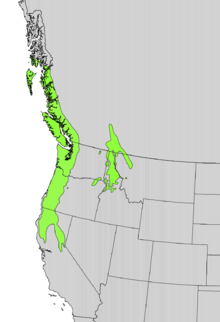
Terreya (nutmeg)
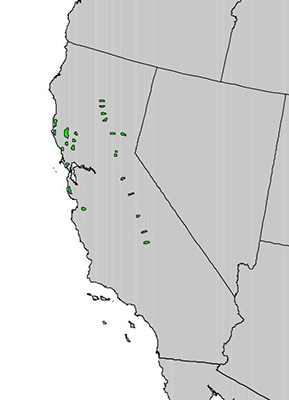
Cupressaceae (cypress family)
False cedars, Cypress, Junipers, Redwood
Cupresseaceae fatcs.
Evolved around 200 MYA extant species evolved around 160 MYA. There is 28 genera and 128 species. Most widely distributed and most genera out of all the conifers.
the 3 decidious genera in Cupresseceae are..
Glyptostrobus,(non CA) Metasequoia(non CA) and Taxodium (FROM CA)
Cupressacea native to CA are..
Callitropis (Incense-cedar), Chamaecyparis (white alder), Thuja, Hesperocyparis, Juniperus, Sequoia(redwood), Sequoiadendron (giant sequoia)
False cedars are named as such because
true cedars are only on the east cost and when taxonimists traveled over west they saw similar characteristics and assumed they were the same when they are not.
Alaskan Yellow cedar range
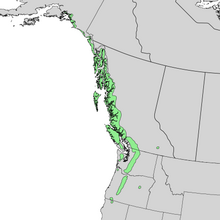
Incense Cedar facts
very easily killed by fire, found inland in mountain ranges
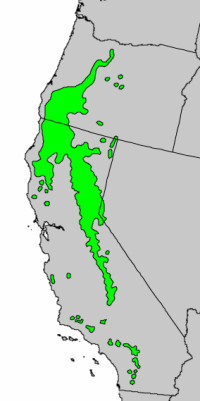
Port Orford-Cedar
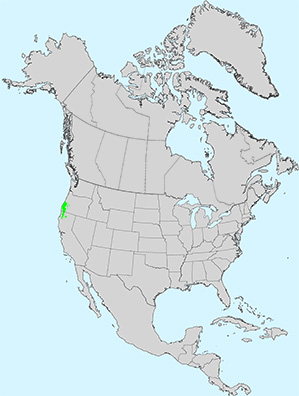
western red cedar
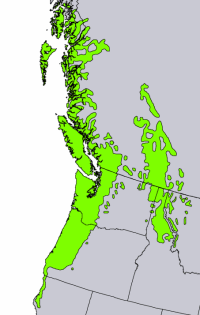
Cypresses… (hesperocyparis)
like to grow in poor soil high in magnesium what is deadly to most other plants. theres 25 species world wide with the second most specious place in the world being California
Baker Cypress
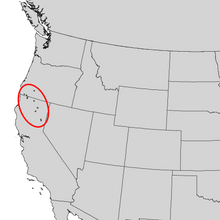
MacNab Cypress
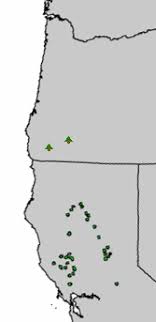
Sargent Cypress
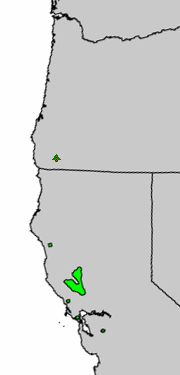
Pgymi Cypress
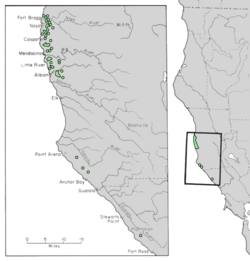
Santa Cruz Cypress
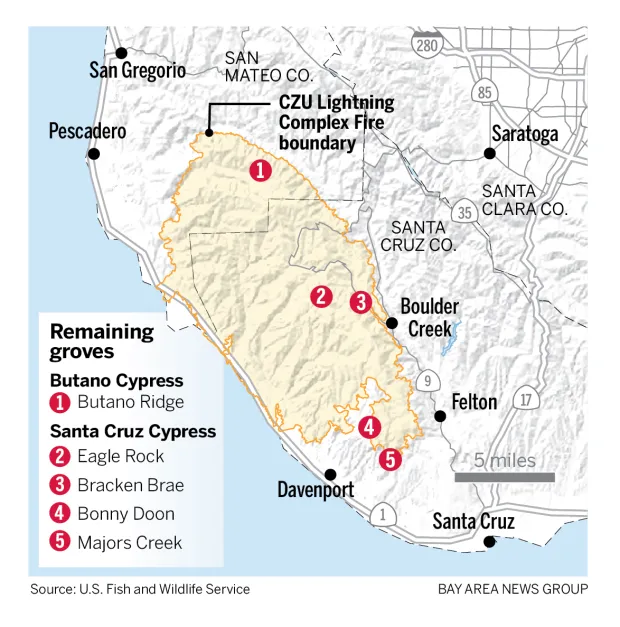
Gowen Cypress
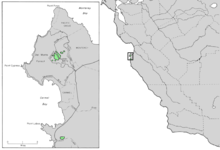
Monterey Cypress
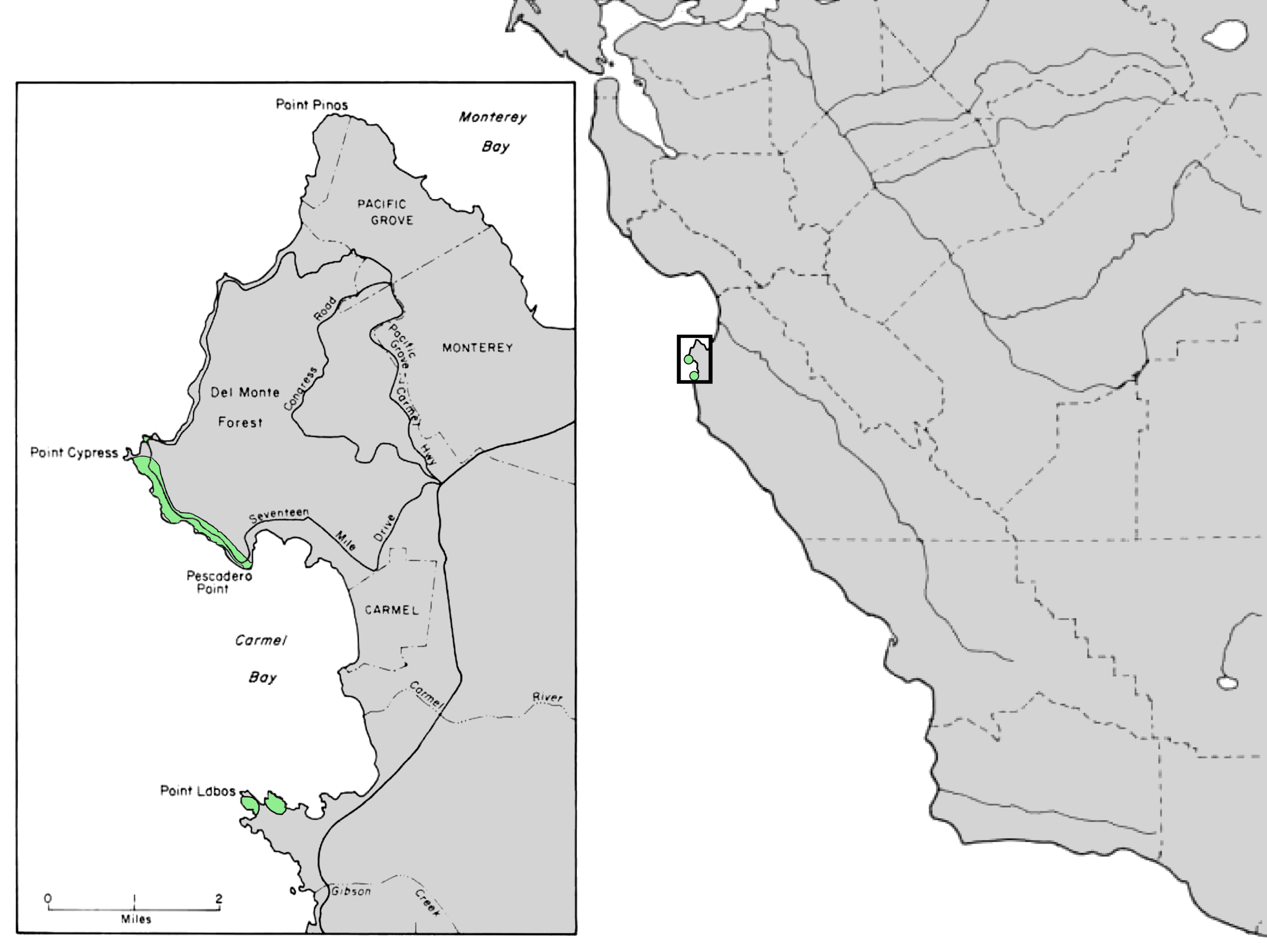
Piute Cypyress range
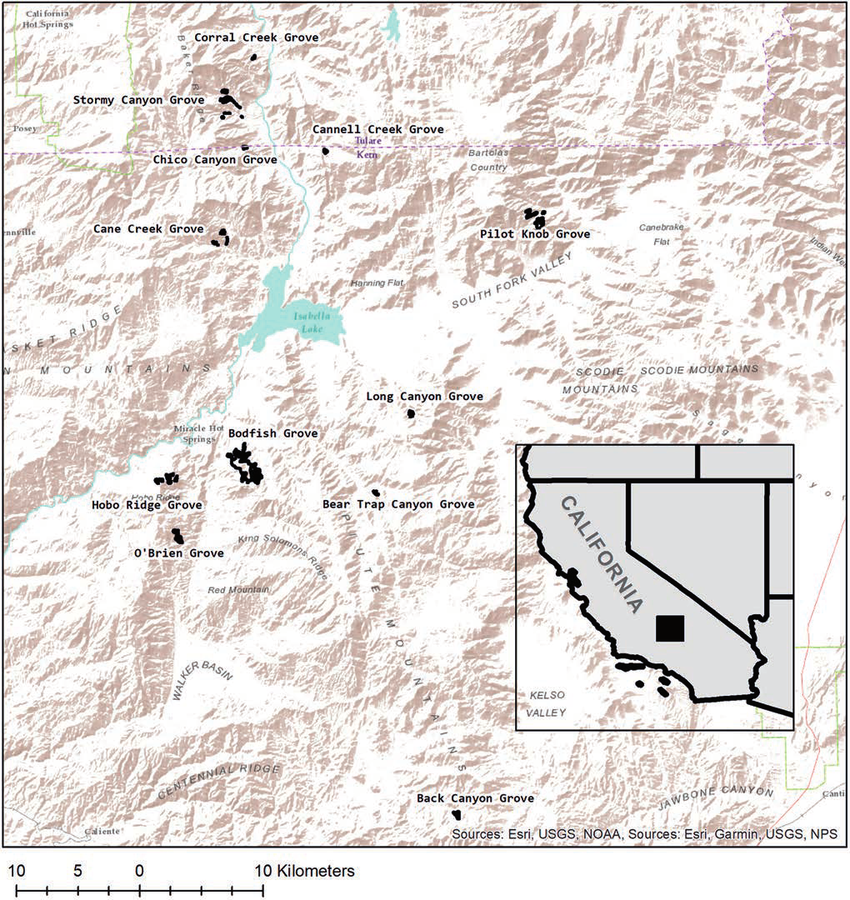
Cuyamaca Cypress range
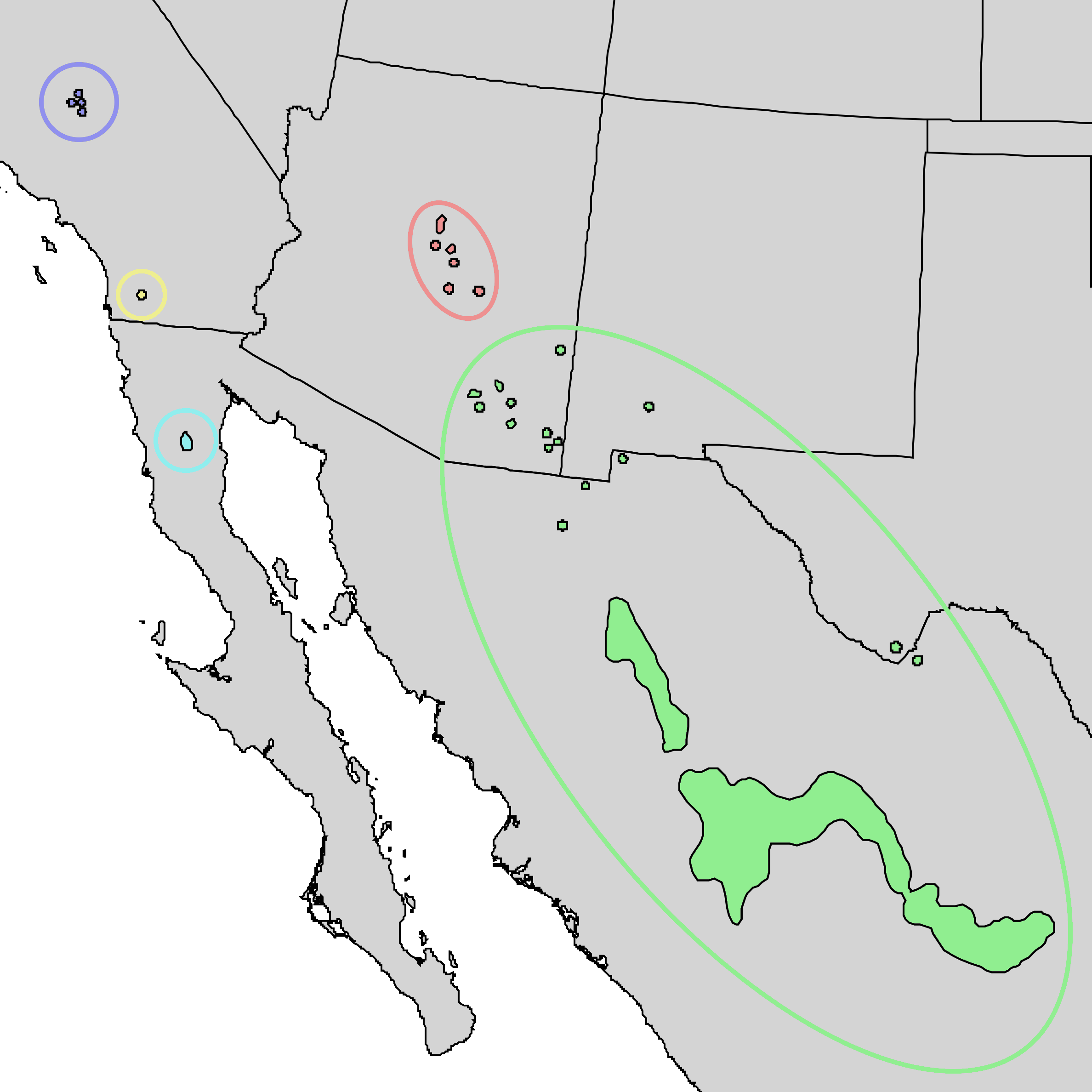
Tecate range map
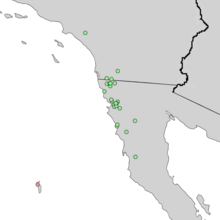
Cupressaceae facts.
Pinophyta, Cupressaceae, And Juniperus are the most speciated genera within Cupressaceae around 75 species and are seen litterally everywhere in the northern hemisphere of the world often seen in Xeric locations
Xeric
dry
Mesic
wet
Common Juniper
most widespread conifer in the world, awl like leaves, bright white cones,

Western Juniper
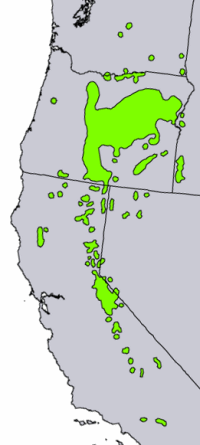
Utah Juniper
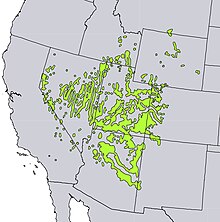
California juniper range map
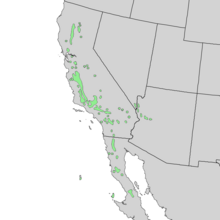
coastal redwood range map
only living genera in the sequoia genera and hasn exclusily coastal range, need’s a lot of fog
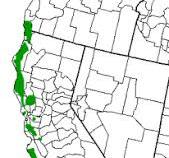
giant sequoia range map
cones can grow for 20+ years before falling and can harbour 20000 cones at a time, cones need to dry out for the seeds to release
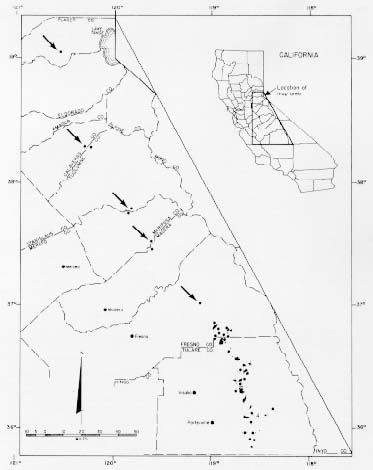
Pinacea (Pinus) Facts
none fused seed scale. date back 140 MYA evolved to fit the norhtner hemisphere 11 genera, 232 species ,35% of conifers, 6 generea native to NA , 64 species native to NA but only 32 native to CA. usually win dispersed
what are the 2 types of pines
white pines and yellow pines
yellow pines
also known as hard pines, have more latewood than their white pine counterparts and make up around 2/3 of all pine tree’s usually better for lumber and have a persistant facicle shealth
white pines
also known as soft pines, they make up 1/3 of all pines, have.5 needles per facicle and all have descidious facicles shealths meaning they fall off as they get older
what 6 generea of pinaceae occur in NA
Abies (fir), Picea (spruce), Pinus (pine), Pseudotsuga (Douglas-fir), Tsuga (hemlock), and Larix (larch).
What genus in Pinaceae is deciduous
Larix